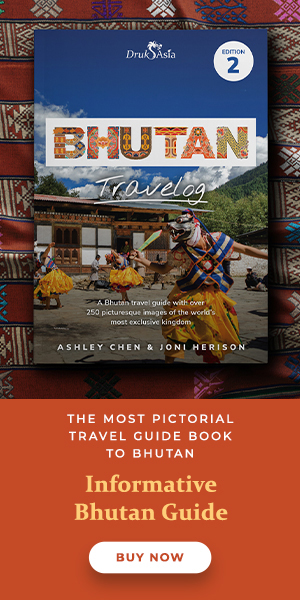One Woman, Multiple Husbands And The Vanishing Practice Of Polyandry In Bhutan
Polyandry is still practised in Bhutan, Tibet, Nepal and pockets of India.

By Zann Huizhen Huang | Daily Bhutan
An age-old practice that has gradually disappeared in some parts of the world, polyandry which means ‘many’ (poly) and ‘man’ (andros) in Greek, literally refers to a woman taking two or more husbands.
This rare and unique form of marriage custom existed in some communities for centuries but has mostly faded in the past few decades.
However, polyandry is still practised in Bhutan, Tibet, Nepal and pockets of India, particularly amongst the minority tribes living in the Himalaya region.
A system of union which most likely arose in populations where resources such as land and food were scarce, it could also possibly have been adopted as a way to address the issue of gender imbalance, that is, when there were more males than females.
Interestingly, in almost all cases, the kind of polyandry which existed was fraternal or adelphic (brothers sharing one wife) as opposed to non-fraternal polyandry, where a few unrelated men share a wife.
Reasons for practising polyandry in Bhutan
Borne out of necessity due to specific geographical challenges such as a place’s remoteness or lack of tillable land, the practice of polyandry allows family wealth and land to remain intact and undivided.

Young Layap with her baby at the Royal Highlands Festival.
Photo: Druk Asia
Having one woman married to a few brothers is a way to guarantee that their children would all inherit the pasture land and flocks together.
Conversely, if every brother had married separately and produced children, land and other properties would have to be split, this can be impractical in environments where resources are scarce.
Typically, the eldest brother usually dominates the household, and all the brothers are regarded as equal sexual partners of the shared wife.
In Bhutan, polyandry is still practised in the remote highlands of Laya as well as the Brokpa tribe living in Merak and Sakteng, district of Trashigang.
Pertaining to Laya, which remains largely inaccessible due to its geographical isolation, practising fraternal polyandry enabled the sharing of responsibilities amongst the brothers.
According to Laya’s Gup, Lhakpa Tshering:
“Laya was remote, detached and remained hidden in the mountains. Marrying an outsider was looked down upon. As a small and independent community, trust was important. People also preferred to live together as not many could afford to build a house of their own, so the custom of marrying more than one husband was common.”
Source: Youtube/BBC Studios
Fraternal polyandry allows for better distribution of duties between brothers, while one might be in charge of animal husbandry, another could be farming or travelling to other villages to barter goods.
In Eastern Bhutan, Dechen Wangmo, is one among a few Brokpa women who is married to two husbands, who are brothers.
“The main reason is because being a highlander we need to rear animals. Initially I was married to the elder brother. But then I had to look after my aging parents. So I had to marry the younger brother too since there is no one to look after the animals. So far there is no problem with my marriage,” she said.
Marriage ceremonies sometimes only involve the oldest brother and all the adult brothers. In the event that there are brothers who are still not of age, they may join the household later.
Zam, a Layap from Thongra chiwog married her first husband at the age of 19. After two years, she married his younger brother and they have three children together.
“I love them both equally. Our secret of happiness is that I do not differentiate between my husbands. At one given time, one of my husbands will be with the yaks in the mountains while my other husband stays with me at home and helps with the household chores.”
Vanishing practice of polyandry
As the young are better educated, men tend to leave their villages to look for better jobs and opportunities elsewhere.

Brokpa yak herders from the Trashigang district of Bhutan.
Photo: A J Heath
Phurpa Zangmo of Merak felt that marriages based on mutual consent and affection is the preferred norm nowadays rather than polyandry:
“Our Parents still want us to keep the tradition alive but I think differently. So we cannot fulfil their wishes. Even if our parents make arrangements, the marriage does not last for long.”
The improvement in the highlanders’ standard of living is also another contributing factor to the decline of polyandry which has somewhat outlived its usefulness.
As Bhutan opened its doors to tourism, homestays became a viable source of income for the highlanders unlike in the past, the lack of provisions compelled some Layaps to marry multiple partners.
Another catalytic factor is the legalisation of cordyceps collection in 2003. This lucrative trade changed the economic dynamics of these highlanders, prompting more women to settle for just one husband.
No matter how far-flung these places are in Bhutan, it seems that the Layaps and Brokpas cannot resist the tides of change.




